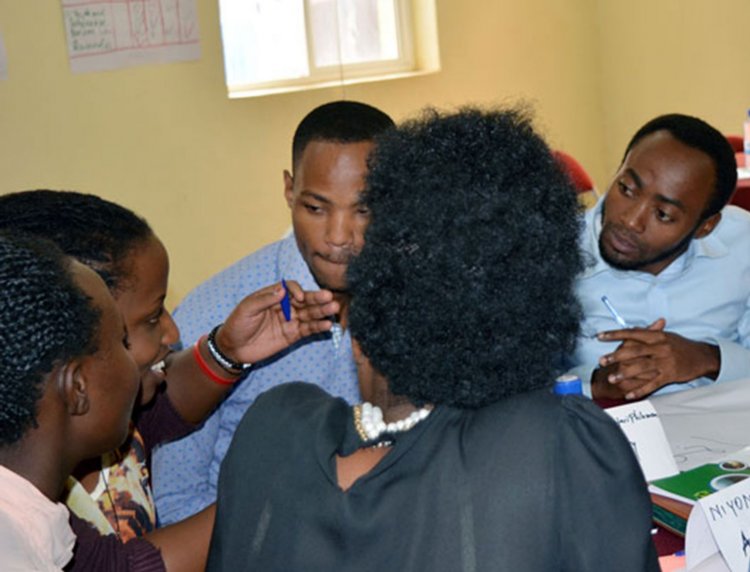Rwanda’s night owls who have been retiring to the bar past 1am, like their friends and those who serve them, will over the next weeks be transacting their last in full peace as September 1st marks the start of enforcement of rules Government hopes will deter the growing alcohol abuse scourge among youth nationwide.
Alcohol consumption in the country is at 48 per cent, a rise from 41 per cent in 2013, according to the latest survey by the country’s health ministry allied Rwanda Biomedical Center (RBC). A recent decision by the cabinet, which is expected to take effect starting September, compels drinking joints and other non-essential service providers to close by 1am and 2am on weekdays and weekend respectively.
Only those with special permission will keep open upon compliance with a set of rules that are yet to be announced by the hospitality industry regulator. The decision has caught many by surprise and shock in equal measure, given its likely implications on the jobs and urban life after dark in a country where the 24-hour economy still struggled to pick up.
The pharmacist next to where this writer lives had never ceased wondering why despite huge investment in urban lighting and that of highways linking the capital to secondary cities and key regional corridors in addition to night security patrols, Kigali City still dies at night.
The just announced curfew rules have him in shock. He thinks they are akin to announcing that Rwanda’s cities don’t need a 24-hour economy which should instead be supported to ignite economic growth for a country that seeks to be in the league of those with middle income status by 2035 and high-income status by 2050.
Also read: Rwanda population on the rise: Is economy creating enough ‘decent’ jobs?
The pharmacist’s clients were few night owls including those who patronize bars in his vicinity and late night workers at construction sites who double up as clients for the restaurant next to his business. This traffic also keeps the Chapati maker besides his shop restless, and so does the Muchoma who roasts the popular brochettes around the place and the mobile money guy next to them.
When new rules come into effect, chances are that they will inflict losses in the business of Muchoma, that of the Chapati guy, the mobile money guy and the bar. Even if these entrepreneurs aim to pull up their socks before curfew time they still stand to lose clients who usually start streaming in at around 11pm, because these patrons will not show up knowing that they will be chased away in two hours.
This, definitely, translates in loss of a chunk of revenue, and could imply salary cut or retrenchment of the night shift bartenders in Kigali and other cities in the country. The pharmacist could be the only one who will remain open since pharmacies fall under the category of essential services. He is likely to find it boring working in a lit and patrolled yet quiet environment with no traffic.
Not the answer
This writer shares views with those who think that much as there are growing concerns over alcohol abuse and noise pollution in the country imposing curfew in the name of curbing the scourge is not the answer. On one hand, there are rules with punitive provisions – which are updated from time to time and are strictly enforced — to keep urban noise in check. So pollution concerns shouldn’t suddenly prompt business closures at any time of the day… not even after 1am.
On the other hand, whoever thinks that night curfew will deter binge drinking could have wondered where people, and especially the youth were drinking during the two years of the coronavirus pandemic. Local brewers registered a sharp rise in beer sales, an indication that those who binge-drink still did, from homes or other places, despite series of strict lockdowns, nightly curfews and closure of bars.The same could play out this time.
Root cause
It is a fact that curfew rules will have unintended consequences on jobs, and take a toll on night life while failing to address the root cause of the rampant excessive drinking problem among general population and young people in particular. Drug and alcohol abuse among Rwandan youth, like other social issues such as indecent dressing and rising teen pregnancy cases which lately preoccupied this society have, in my view, a lot to do with gaps in parenting and education system that is wanting in quality.
Conservative parents and school system continue to live in denial and refuse to open up about matters alcohol, sex, sexuality and gender issues, hence young people lack the much-needed knowledge and guidance by the time they are ushered in the world of adults or left to lead own lives.
Drug and alcohol abuse among Rwandan youth, like other social issues such as indecent dressing and rising teen pregnancy cases which lately preoccupied this society have a lot to do with gaps in parenting and education system that is wanting in quality.
Educationists think opening up about these issues to the young people is tantamount to encouraging them to ‘indulge’ in immoral behaviours. Parents are only shocked when kids ‘break free.’
Also read: Abstinence-only approach to teens and sex has failed, act before it’s too late
One would not be far from the truth to conclude that majority of today’s parents and educationists have been grooming kids for the same society they grew up and lived in, not realizing that things have changed and are set to change to levels beyond control. There is need for parents and schools to open up to the kids about issues that globalised world keep throwing at society, and nurture or impart moral values to offsprings in a manner that help the latter to stand on their own and navigate the world as it changes.
Kahlil Gibran put it plainly in The Prophet (1923) that “Your children are not your children (….) You may give them your love but not your thoughts, for they have their own thoughts. You may house their bodies but not their souls, for their souls dwell in the house of tomorrow, which you cannot visit, not even in your dreams.” He adds: “…seek not to make them like you. For life goes not backward nor tarries with yesterday.”
Bad parenting
The Rwandan society also suffers from having a big number of “Do as I say, not as I do parents” as Dr. Scott Peck would call them in The Road Less Traveled (1978). As a parent, why expect a kid to stop binge drinking when you yourself ‘overindulge’ at home and at the bar? Why expect daughter or son to dress decently when you don’t?
These are parents who themselves are unselfdisciplined when it comes to matters drinking, dress code…name them, and yet serve as role models for their children. Dr. Peck calls this “undisciplined discipline.” I understand most slay queens in town are actually mothers parenting Rwanda’s next generation, and Abapfubuzi [youthful men claiming to be ‘sexeperts’ for hire to ‘fix’ women sexually] are dads to someone who will inherit this place.
Mental health
Also consider the fact that we are increasingly living in a society that celebrates fame without indicating what it takes to achieve it, and that suddenly become the source of stress for many, especially young people with some ending up drinking excessively to cope. The mass media is constantly exposing everyone and the youth to what is deemed success of peers or other figures in the society, while showing nothing of the hard work, if any, that was required to attain those achievements.
You possibly remember the former youth minister who claims to be worth Rwf1 billion ($849,100) having started from only Rwf300 ($0.25) some 15 or 20 years ago. Did he say or the media bother to ask how he achieved it? What message did that send to thousands of educated but jobless youth across the country?
The former Minister left the youth under his docket and others who looked up to him thinking that one day they will wake up millionaires… out of the blue. It is also worrying to see that many among those who listened to his story aiming to achieve the ‘success’ at any cost even if it involves partaking in the same corrupt acts that would later land the senior official in jail.
Also read: DRESS CODE ON TRIAL: Use social remedies, not jail, to fix social ills
This society must admit that failure to properly deal with mental problems that arise from the issues raised above and others contribute to the alcohol or drug abuse scourge that the country is grappling with at the moment. Much as legal remedies like the just introduced curfew rules could help mitigate, they should not be priority.
You may remember that in recent past when government officials decried rise in abuse of drugs among the youth, they were quick to heighten punitive provisions for drug use in the penal code. What government got, as a result, is an overpopulation in prison facilities which it is now moving to decongest.
It is high time officials normalize applying social remedies to social problems. Government could start by putting institutions in charge of family promotion to task, and asking the many churches, mosques and NGOs how they’re using billions that they raise each year towards contributing to the betterment of communities that host them.
This should go hand in hand with addressing issues of high rate of unemployment, the affordable housing crisis and generally the issues of high cost of living.










